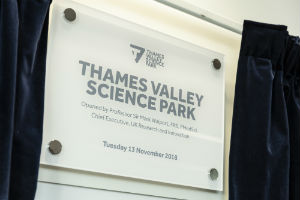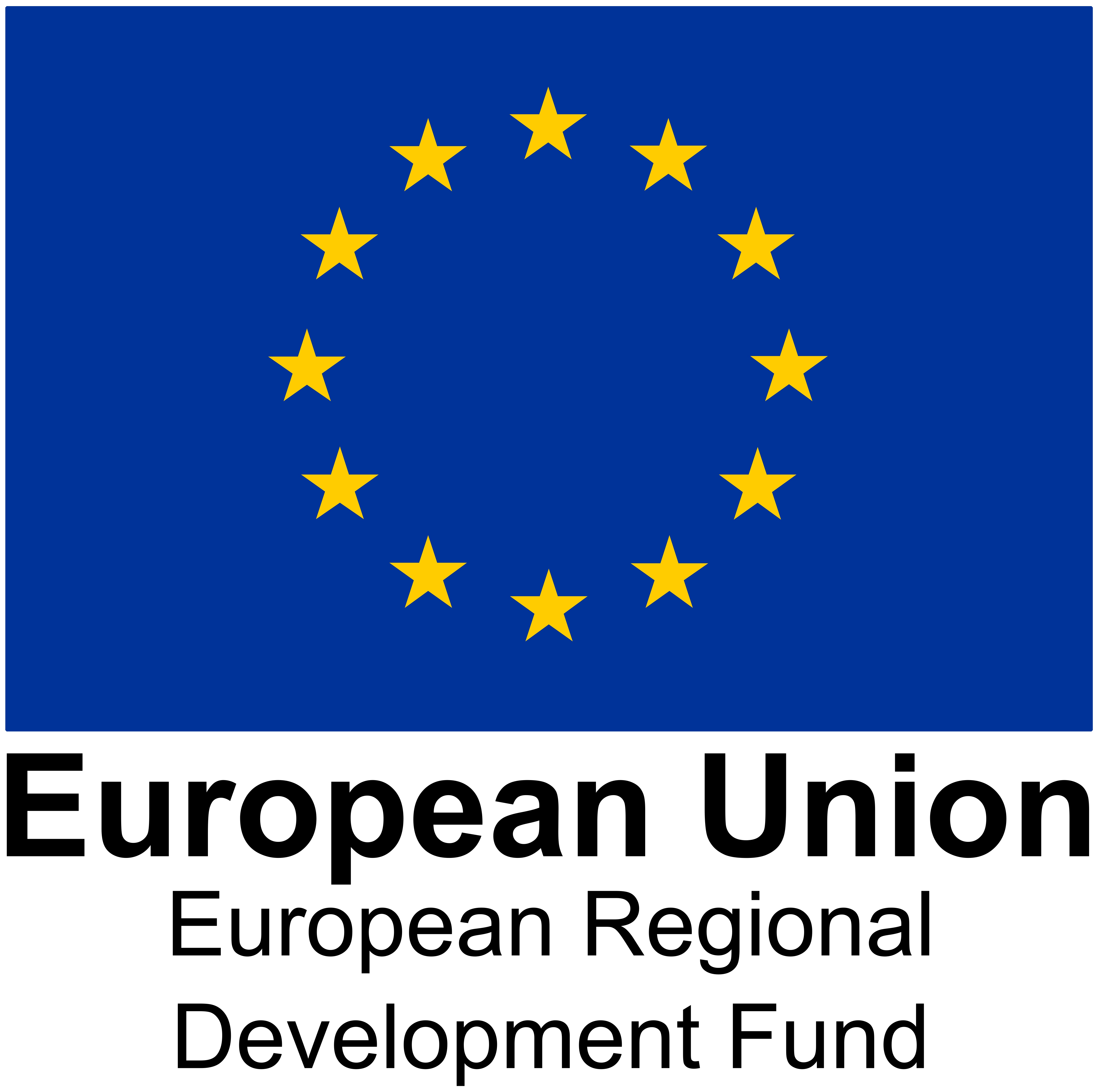“Co-location clusters are breeding grounds for innovation” says Chief Exec of UKRI
15 November 2018

Speaking at the official launch of the Thames Valley Science Park, Sir Mark Walport went on to compare the Thames Valley region to well-established innovation hubs
The Chief Executive of UK Research and Innovation (UKRI), Mark Walport, has said that "co-location clusters are breeding grounds for innovation".
"Global challenges driven by demographic change, the aging population, pollution and the environment create an extraordinary opportunity for innovation. These global challenges will frame many of the companies that develop here on the Thames Valley Science Park."
UKRI is a newly formed body that is responsible for the public funding of research and innovation.
The comments were made this week [Tuesday 13 November] at the official opening of the Thames Valley Science Park, which is owned by the University of Reading.
Drawing on a visit to the well-established Biotech Cluster in Kendall Square, Boston, Mark Walport commented on the conditions that needed to be present to create thriving innovation hubs.
"People are the most important ingredient in the recipe for success, but they want to be able to live, work and play in one place".
"UK Research and Innovation recognises that the right location and environment are vital to fostering the best collaborations between academia and industry, and attracting the best talent in research and business.
"Science parks such as the Thames Valley Science Park play a fundamental role in the UK economy - the successful businesses of the future will be based on science, research and technology.
"The Thames Valley Science Park and surrounding area, especially with its connection to the University of Reading, is a great example of somewhere that provides an attractive proposition for both businesses and individuals alike."
Following years of planning and development, the Science Park's flagship ‘Gateway' building opened its doors for business in March 2018.
The 70,000 square foot building offers flexible office and laboratory space and was part of an initial £35 million investment into the Science Park. The first building to open is now home to 15 cutting-edge technology companies, ranging from early stage start-ups to global research and development centres.
Tenants have access to a high-speed digital infrastructure that will meet the vast data needs of their businesses. Other amenities at the site located in Shinfield (just off junction 11 of the M4) include a café, conference facilities and flexible meeting spaces.
A dedicated hub for entrepreneurs and growing businesses is also based in the ‘Gateway' building. Innovation Catalyst is a collaboration between VitalSix, a specialist in supporting growing businesses, Thames Valley Science Park and Barclays Eagle Labs.
The Thames Valley Science Park will take up to 20 years to be fully developed, with significant long-term investment from the University of Reading. Once complete, the Science Park will be amongst the biggest dedicated science parks in the region and one of the largest in the South East.
Professor Robert Van de Noort, Acting Vice-Chancellor at the University of Reading, said: "To date, the University of Reading has helped more than 250 businesses team up with our researchers and secure funding for a range of projects that take our discoveries and innovations, and turn these into products that can come to market.
David Gillham, Director of the Thames Valley Science Park, said: "The Thames Valley Science Park builds on our established cluster of over 70 companies already based in our Science and Technology Centre and Enterprise Centre.
"Businesses can access our support in a variety of ways and we actively seek opportunities to use and share our research and resources, enhancing innovation in industry."
The Thames Valley Science Park will eventually deliver approximately 800,000 square foot of flexible laboratory and office space in a campus style setting designed to encourage collaboration. Once completed, it will have the potential to provide up to 5,000 new jobs.
The second building, an innovative cancer treatment centre, opened in October 2018. The Rutherford Cancer Centre Thames Valley will help to meet growing demand for proton beam therapy, a specialised type of cancer treatment that, until recently, has not yet been available in the UK.
Plans for the third building in Phase One were approved in February 2018.
In May 2017, outline planning consent was granted for the second phase of the Thames Valley Science Park. Wokingham Borough Council approved the conceptual plans for approximately 15 further buildings on the remaining 600,000 square foot of the site, to be developed as and when required.
The initial investment in the Park includes £30 million from the University of Reading and £5 million from the European Union's European Regional Development Fund.
For more information on the Thames Valley Science Park, visit www.tvsp.co.uk

